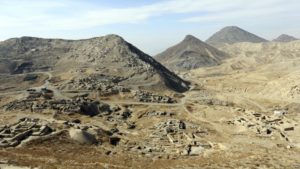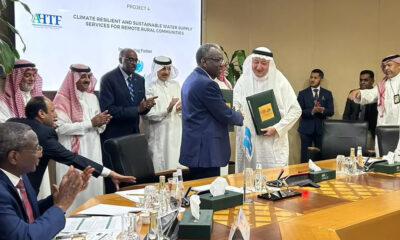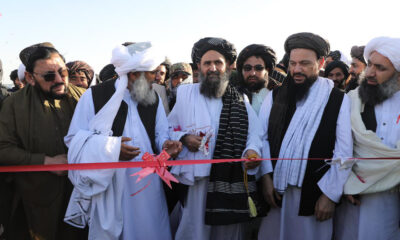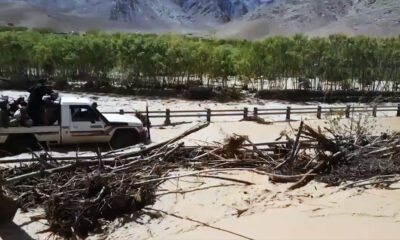Latest News
Taliban, IS Make Millions of Dollars From Mining Minerals in Afghanistan

Rising global demand for cosmetics, marble and stainless steel is helping Taliban and Islamic State (IS) militants in Afghanistan fund their increasingly violent insurgencies, according to an investigation by Global Witness.
The insurgent groups make millions of dollars annually from mining talc, chromite, and marble in the eastern part of Afghanistan.
The international NGO in a report on Tuesday estimates the Taliban earns $2.5 million to $10 million a year from mining talc alone.
It is unclear how much Islamic State’s local affiliate, which has fought and taken over mining areas from the Taliban in three districts of Nangarhar province, has managed to exploit the mines, according to Global Witness.
“The relationship between the Islamic State and mining is powerful and worrying, but it is only a case study for what is a much larger problem,” said Nick Donovan, a campaign director at Global Witness.
“Not just insurgent groups but also a host of other illegal, semi-legal and legal armed groups across the country benefit from mining. The Taliban in Nangarhar province demonstrate this with particular force.”
Global Witness cited unidentified people claiming that IS had brought in foreign engineers from Pakistan and Saudi Arabia and installed heavy machinery at the mining sites. Phones are banned and locals are searched and monitored by the groups near the mines, according to the report.
“Talc is being extracted in the regions which are under the Taliban’s control, but their transport and exportation is being done through under government control areas,” said Naser Timori, researcher of Integrity Watch Afghanistan (IWA).
According to Global Witness, most of Afghanistan’s talc production is smuggled across to Pakistan at the Torkham border where it can eventually be shipped out to other markets.
“The relevant institutions should not be silent regarding the situation of mines [in the country], they can be called guilty from law’s perspective,” said Mohammad Zamir Zamani, a lawyer.
Calling the report as worrying, the Interior Ministry Spokesman Najib Danish said that they will make efforts to ensure security of the mines in the country.
The Ministry of Mines and Petroleum refused to make a comment in this regard. Earlier, the Defense Ministry has also expressed concerns regarding the mining of minerals by the militant groups in the areas which are under control of the anti-government elements.

Latest News
Minister of mines says minerals must be processed in Afghanistan before exported

Acting Minister of Mines and Petroleum Shehabuddin Delawar has said in a meeting with officials of a Chinese company that the export of raw minerals for processing abroad is no longer allowed.
He said the ministry will work with foreign mining companies as long as they also process the minerals in Afghanistan.
Delawar said this during a meeting with China’s state-owned company MCC Holoda, and Chinese officials from the company contracted to extract copper from Mes Aynak.
The Ministry of Mines and Petroleum said in a statement that MCC Holoda is one of the largest mining and processing companies in China for copper, lead and zinc.
According to the statement, the company has expressed an interest in investing in copper, lead and zinc mines in Afghanistan.
Delawar welcomed their interest and said there are lead and zinc mines in Bamyan, Kandahar and Ghor provinces, and if the company agrees to process minerals inside Afghanistan, the ministry will cooperate with it.
Delawar also discussed the Mes Aynak copper project and called for acceleration of work at the mine.
Latest News
Afghanistan Humanitarian Trust Fund report highlights problems tackled
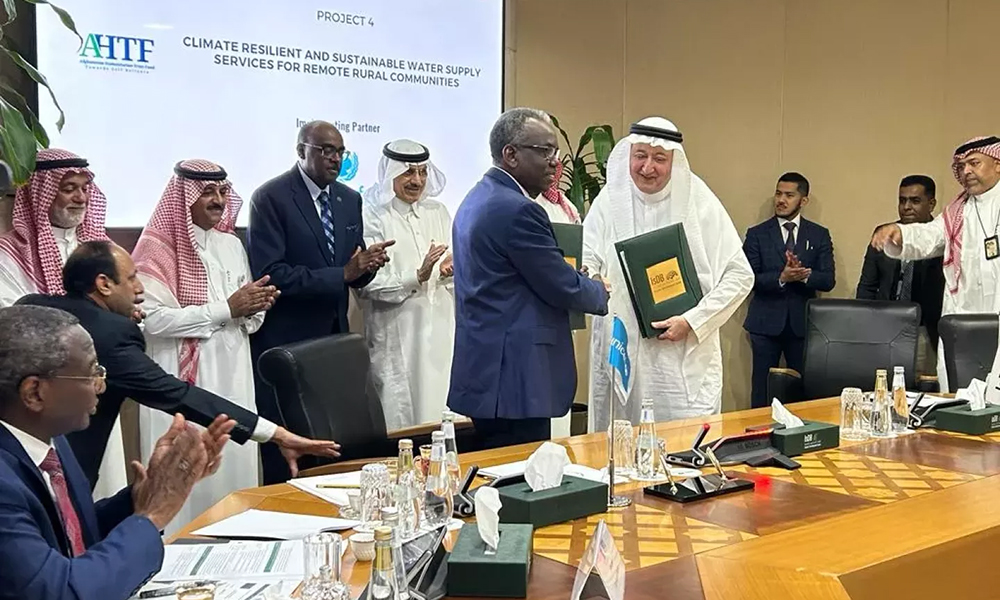
Mohammad Jamal Alsaati, Special Advisor to IsDB President and IsDB Coordinator for Afghanistan Humanitarian Trust Fund (AHTF), said this week that 14 projects, signed in 2023, have materialized at a total cost of $35.35 million.
He said in a statement issued Sunday that of this, $24.14 was from contributions from AHTF with a further $12.21 million provided by implementing partners and other international organizations.
Alsaati said all the services provided have created job and capacity building opportunities for the people of Afghanistan and that as of March 2024, pledges to the fund totaled almost $35 million, with more funding expected.
Alsaati’s comments were in a statement issued by the Islamic Development Bank, (IsDB), after it released the first comprehensive report on the achievements of the AHTF.
The report highlights the coordinated efforts by the IsDB, its partners, and stakeholders towards “Promoting Self Reliance and Resilience” in Afghanistan.
The AHTF’s mission is to provide initial humanitarian aid but then to prioritize development and self-reliance to move beyond emergency assistance – promoting reconstruction, empowerment and sustainable development.
IsDB President and Group Chairman, Muhammad Al Jasser meanwhile said following the release of the report that after receiving generous contributions, the AHTF “sprung into action, delivering essential aid to Afghanistan’s most vulnerable communities.”
He said the fund was able to tackle food insecurity, offer child nutrition programs, provide healthcare, innovative education, clean water, sanitation and hygiene services.
“Our projects are making a tangible difference on the ground,” Jasser said.
The Secretary General of the Organization of Islamic Cooperation (OIC), Hissein Brahim Taha also reacted to the report and said: “We are very pleased to see several humanitarian and development-focused projects are underway in Afghanistan – driven by the IsDB in collaboration with its regional and global partners.
“But much work still lies ahead, so we look forward to further help and support from our Member States, in addition to continued financial assistance for the AHTF from international aid and relief agencies,” said Taha.
The fund was established at a Council of Foreign Ministers of the OIC on 19th December 2021.
Latest News
Baradar visits Pashdan Dam, as work on project resumes
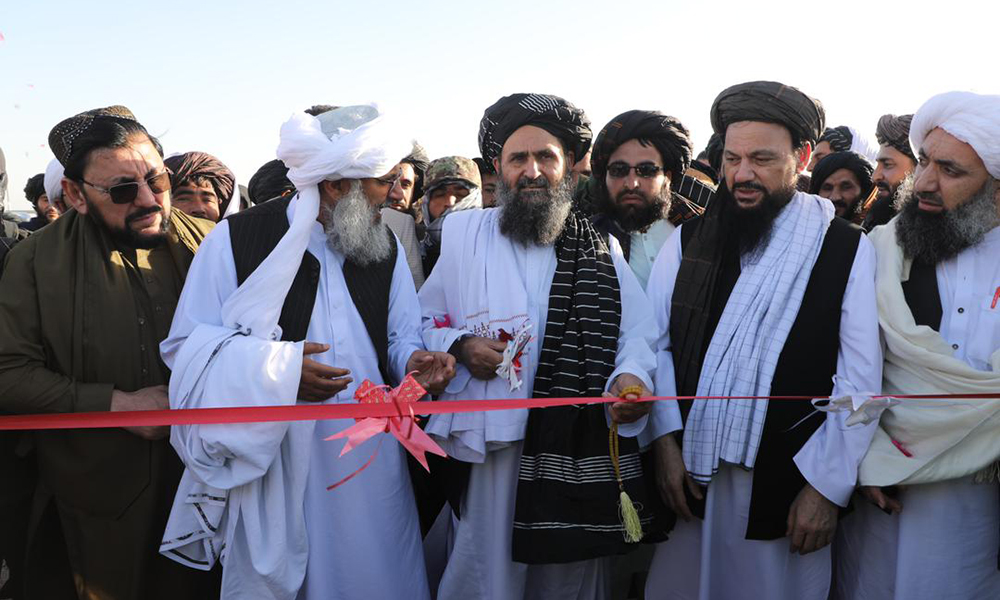
Mullah Abdul Ghani Baradar, deputy prime minister for economic affairs, has said the Pashdan Dam in Herat province is a key national project that the Islamic Emirate is committed to completing as soon as possible.
Speaking at an event marking the resumption of construction on this hydroelectric dam, which was started more than 10 years ago, Baradar said building dams was a priority for the Islamic Emirate.
Once complete the Pashdam Dam will not only generate electricity but also irrigate about 65,000 hectares of agricultural land, in turn providing work to thousands of people.
The dam will cost an estimated $117 million once finished and according to officials, at least 85% of work has been completed.
Officials expect the dam to be operational by the end of this solar year.
The construction of Pashdan Dam is being carried out by a domestic company in cooperation with an Azerbaijani company.
Engineers said the dam will mostly be used for agriculture purposes and for potable water. They also said about 73 kms of canals will be built to irrigate land.
This dam will store 54 million cubic meters of water. Currently, about 400 people are employed to work on the project.
-

 Latest News5 days ago
Latest News5 days agoOver 1,000 Afghan refugees forced out of Pakistan in one day
-

 Sport3 days ago
Sport3 days agoAfghanistan beat Iraq 5-3, inch closer to Futsal World Cup berth
-

 Regional3 days ago
Regional3 days agoNew UK sanctions target Iranian drone industry
-

 Regional4 days ago
Regional4 days agoTurkey accuses U.S. of double standards over Gaza in rights report
-

 Latest News3 days ago
Latest News3 days agoEU allocates 17 million euros to support Afghans on the move
-

 Latest News2 days ago
Latest News2 days agoPakistan extends registered Afghan refugees’ stay till June 30
-

 World4 days ago
World4 days agoUS student protests over Gaza intensify despite arrests
-

 Regional2 days ago
Regional2 days agoChina to host Hamas, Fatah for Palestinian unity talks

